Importance of Patient Comfort: Benefits Go Both Ways
While some aches and pains are unavoidable due to medical conditions, there are ways to improve comfort. When patients are comfortable, there’s a direct positive effect on your practice.

Around one-quarter of people who avoid medical care said that they do so because they feel uncomfortable.
This discomfort could be physical or emotional. People are already uncomfortable in the hospital due to physical irritations from illness or injury. But the atmosphere can make it worse by also contributing to emotional discomforts, such as stress.
While some aches and pains are unavoidable due to medical conditions, there are ways to improve comfort. Some steps may need extra effort from hospital staff, but it’s so important to ease as much distress as possible.
Making it a priority to boost their experience has so many benefits. When patients are comfortable, there’s a direct positive effect on your practice.
Improves Health Outcomes
If patients are comfortable, they are likely to recover quicker and have better health outcomes. A negative environment delays healing.
When patients experience too much anxiety, they don’t recover as easily. An increase in stress hormones like cortisol can lengthen illness. This is because prolonged stress hormones affect the nervous and immune systems. Not only does it make them more inefficient, but it can also overstimulate the body’s immunity and trigger autoimmune disease.
Researchers have done multiple studies on how stress impacts healing. One study reviewed health data of 177,000 people who had various surgeries. It found that the chance of postoperative complications was 17% higher for those with moderate anxiety or depression. They also had a hospital readmission rate that was 20% higher.
While a negative environment suppresses the immune system, positive experiences enhance it. A Gallup study found that most people who consider themselves to have excellent health rated their hospital quality as a 9 or 10.
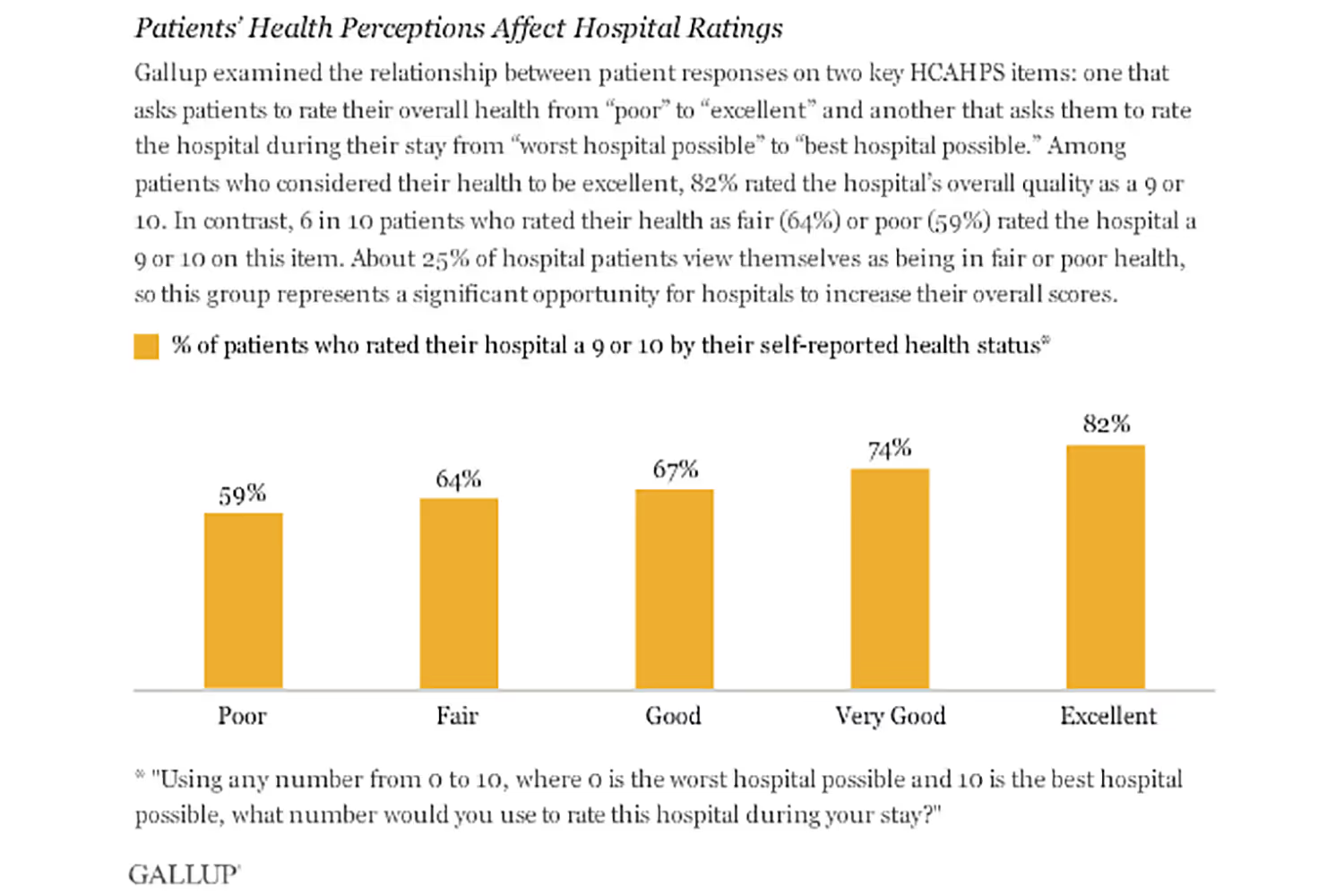
This is because quality health facilities and services lead to better overall health. So when patients are more comfortable, they are more likely to have better healing and can recover faster.
Luckily, hospitals are finding unique ways to improve comfort specifically to reduce anxiety. For example, adding biophilic design to patient spaces since people feel more relaxed in nature. It has proven health impacts, including reducing the production of stress hormones. And it has other benefits as well such as lowered blood pressure, heart rate, and muscle tension. This, too, shortened postoperative recovery times.
Boosts Overall Satisfaction
When an environment is unpleasant, it’s naturally going to make you less satisfied. It might sound obvious that comfortable people are more likely to enjoy their experience.
The University of Kansas Hospital staff went out of their way to provide comfort to boost satisfaction. Nurses would reach out to patients before their stays to go over ways that would make them more comfortable. For example, they recommended bringing fuzzy socks or they’d arrange to get a fan for the room.
By going the extra mile to provide small comforts like these, patients don’t focus as much on the uncomfortable parts of their visit. They’ll be appreciative that your staff wants to make their experience the best it can be despite medical reasons out of anyone’s control.
So what does this improved satisfaction mean for your practice, besides happy clients?
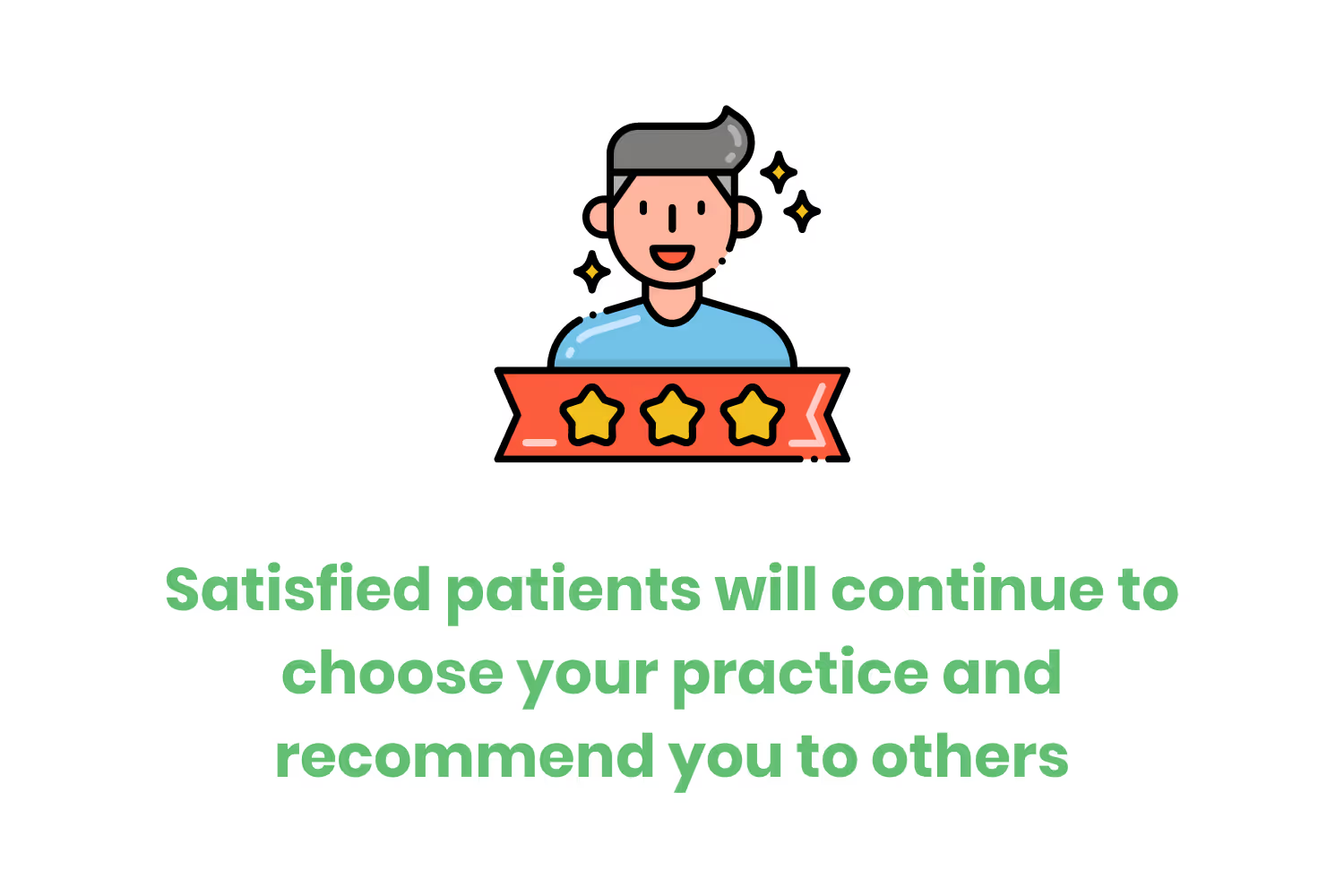
When people have a positive experience, they’ll feel inclined to refer others to your practice. If staff goes out of their way to make patients comfortable, these people will be confident recommending the practice to others.
Besides referring others, they will be likely to return as well. Next time they need care, they’ll remember the quality care they received and feel comfortable with going back to your practice. It reduces the chance that they’ll switch practices if you focus on comfort, thus boosting their satisfaction.
Increases Patient Traffic
As comfort leads to better satisfaction and health outcomes, there will be an increase in traffic.
When people heal faster and have shorter recovery times, clients get released more quickly. If turnover rates are shorter, there’s more room to take care of more people. This increases the traffic in and out of the facility.
On top of that, patients are likely to tell others about their pleasant experiences. When there are frequent positive reviews, there will be more people who end up choosing your organization. Of course, the people who had good visits in the first place will continue to use your practice when needed.
And others who hear or see these referrals will feel inclined to switch practices or choose yours when deciding which to visit. In fact, over half of business people get a majority of customers through referrals.
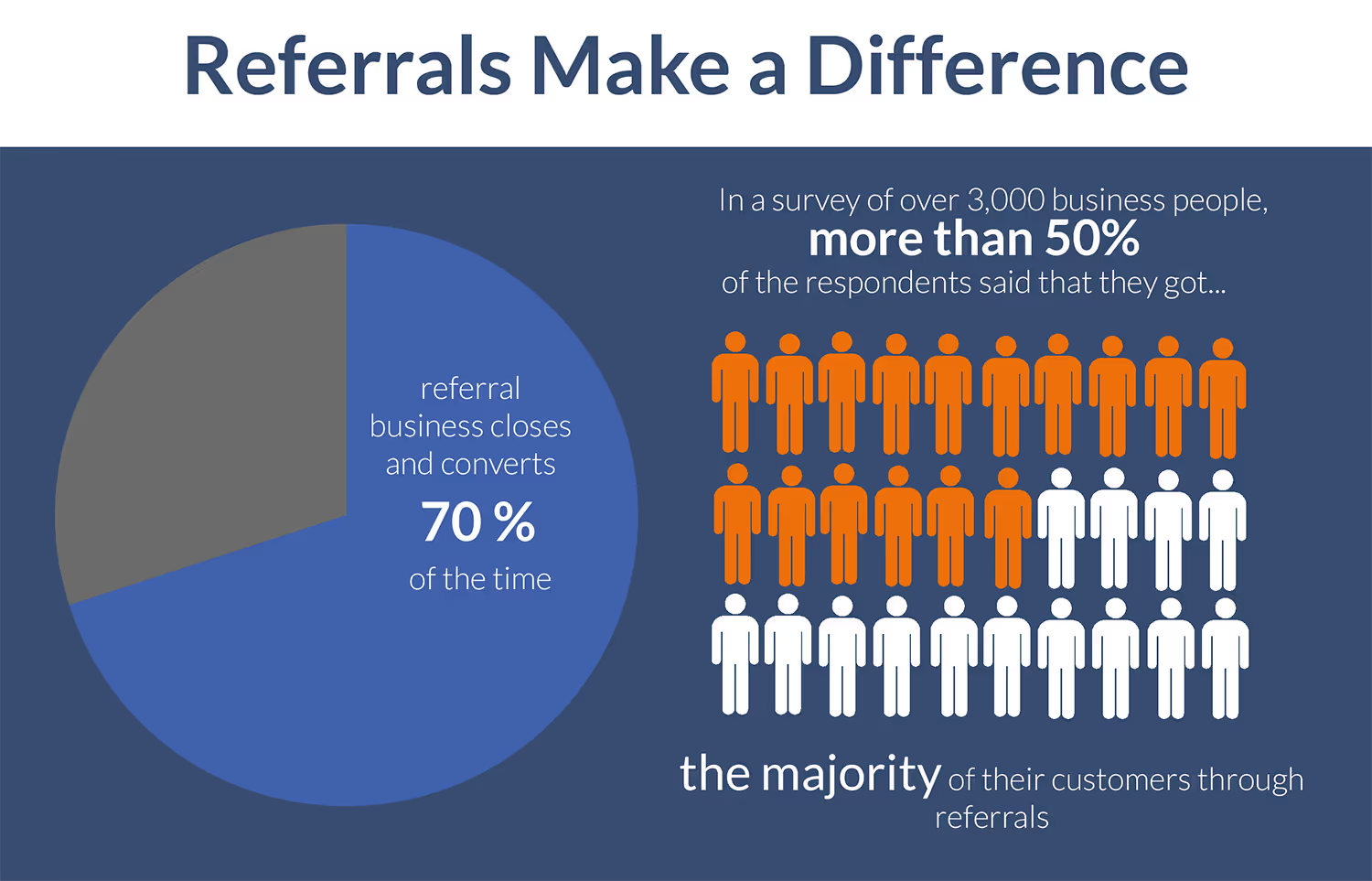
This leads to new customers and more traffic, which also means an increase in revenue.
Better PR for Your Practice
While each of these three things happens, they contribute to better PR for your practice. Like I already said, when people are comfortable and satisfied with their visit, they’ll be likely to give referrals.
These aren’t only by word of mouth. Patients will also take the time to write positive reviews and contribute to testimonials. Of course, this continues to increase traffic since 42% of consumers on social media look at these health-related reviews. And 41% of people choose a doctor based on the information they find on social media.
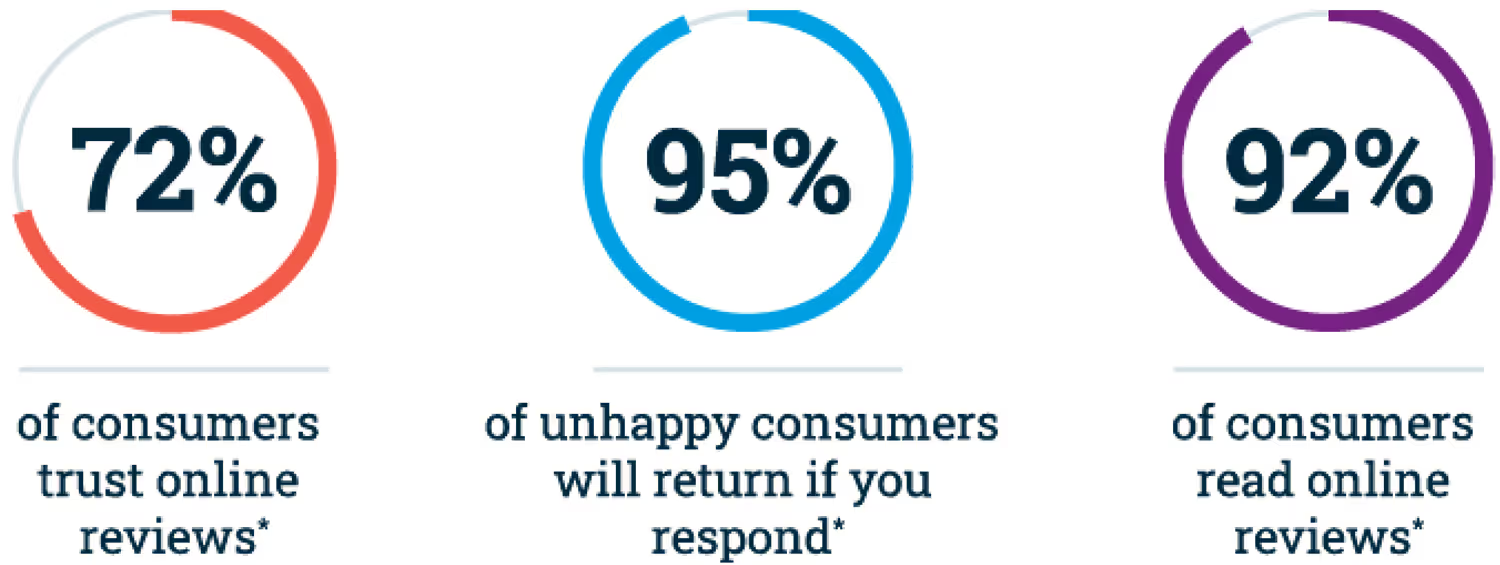
Since so many consumers trust and search for this feedback, you want to make sure they are positive when coming from your clients. And when people leave praiseworthy testimonials, it just continues to drive patients to you.
PR doesn’t only come from clients. As word gets out about others’ great experiences with your company, local media will want to recognize that. Receiving media coverage about what makes your practice so special helps you reach a wider range of potential clients.
This recognition can extend even further than just local. It also increases your chance of landing on web pages. For example, this blog about incredible exam rooms showcases five health systems and their unique spaces. Posts like these help emphasize the comfort, amenities, and services you provide.
You reach a wider audience when this happens, gathering potential clients or even company partners. When you get featured on pages like these, you’ll end up with backlinks to your site. 66.31% of pages don’t have a single backlink.
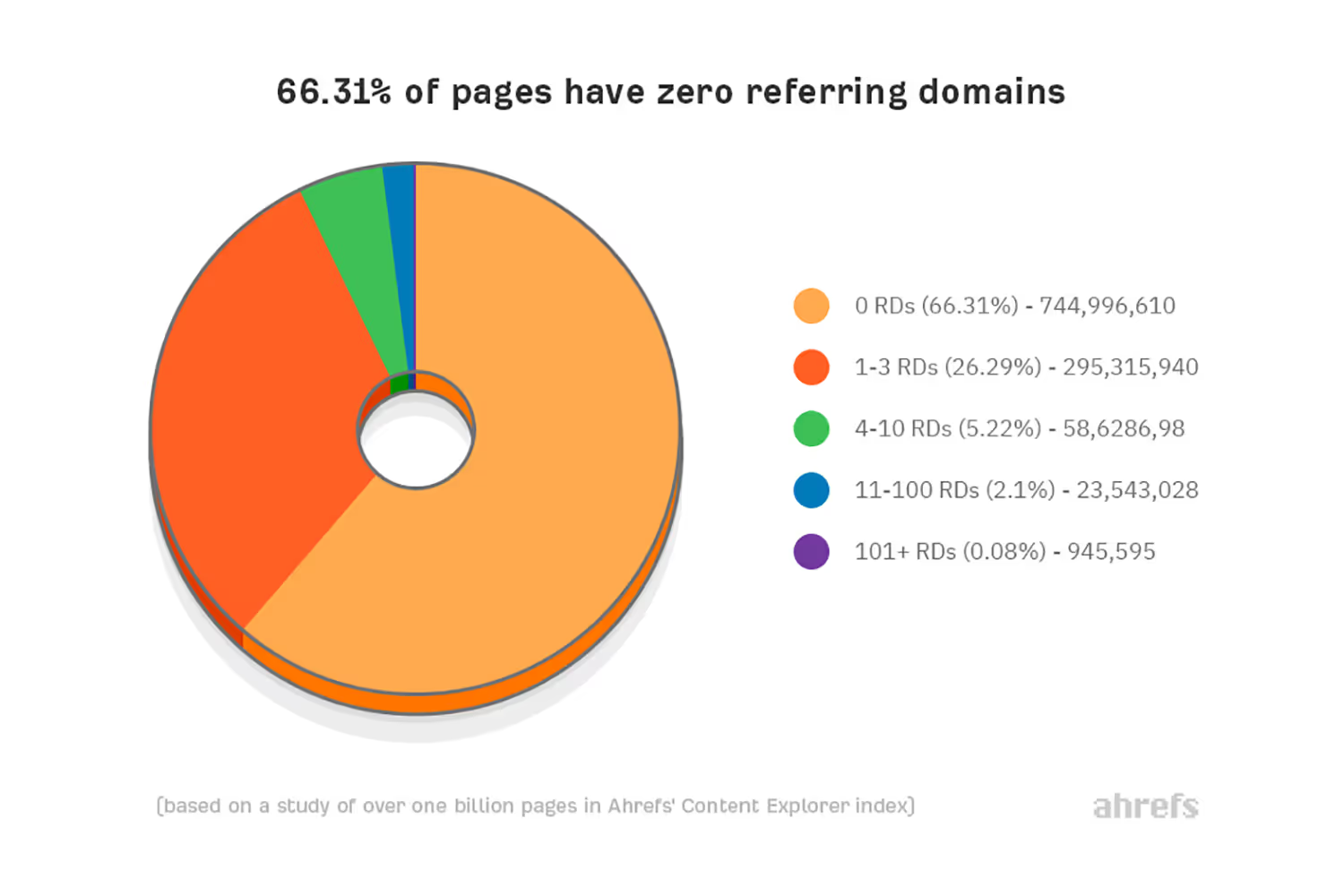
But this is one of Google’s top three ranking factors so without them, your page would get less organic traffic. Backlinks to your page give you a better chance of ranking on Google so that people can find you easier.
So, the better patient comfort you provide, the more likely it is that others will leave good reviews and you’ll receive press. This reaches a wider audience to drive clients to your facility.
Takes Pressure Off Staff
Uncomfortable patients ultimately cause extra work for the staff.
Some residents will overuse the nurse call button for things that aren’t necessary or emergencies. This excessive use slows down hospital care and leads to burnout for staff.
53% of nurses thought that answering call lights was an interruption to their necessary duties. Only 52% said these calls did need care by nurses.
When people are abusing this call button, staff can take reasonable steps to reduce the frequency. Talking with the patient about why they use it so much can help find the root of the problem. They may be suffering from loneliness and need a counselor to help deal with their emotions. Or they could be physically uncomfortable and keep making requests so they feel more at home.
Here are a few steps that hospitals can take to avoid unnecessary call light requests, but improve the patient’s comfort:

If staff discuss call button boundaries at the start of a visit, it can help the patient refrain from using it for unnecessary things. After all, you have other people to deal with. And making the environment as comfortable as possible in the first place will make them relaxed so they don’t make constant requests.
There are fewer demands not only from patients but also from their families. It’s already an upsetting and vulnerable experience when someone’s loved one is in the hospital. If the patient is experiencing discomfort, those visiting might get more upset and complain to the staff.
This causes burnout for employees who now need to deal with difficult family members on top of their client’s care. But if staff addresses comfort initially, families will be happier with the service their loved one receives.
Gives Patients More Confidence
People who are comfortable during their visits will have confidence in your practice. Since your staff goes out of their way to improve their experience, they know you take their recovery and care seriously.
Since you provide quality comfort, it makes them feel safe and like your practice will be efficient in treating them. With this trust, they’ll stress less which leads to healing. Recovering fast makes them trust you even more since they know your services are effective. This makes them likely to recommend you and return as well.
Confidence in themselves also impacts their experience. Self-esteem has a significant role in their well-being. When they lack this, it can take longer to heal. To boost this confidence, staff must make clients comfortable. Ways they do this is through discussions to find a common ground and involving the patient in their care plan.
Conclusion
It’s no surprise that people will experience some discomfort when receiving healthcare. It isn’t pleasant to be sick or have an injury that needs treatment.
There’s only so much that employees can do to ease discomforts through treatments that result from medical conditions. But they can take other steps to provide some consolation during recovery.
When clients have a positive experience, they won’t stress as much and they’ll have more self-esteem. This contributes to faster healing. Better comfort and health outcomes mean they will gain confidence in your practice’s abilities, so they will want to share that with others.
These positive experiences and reviews lead to more people visiting your practice. You’ll also receive media recognition so that your group of clients expands even more. And when patients have higher satisfaction, they have fewer reasons to complain which would just make the job harder.
Emphasize your product's unique features or benefits to differentiate it from competitors
In nec dictum adipiscing pharetra enim etiam scelerisque dolor purus ipsum egestas cursus vulputate arcu egestas ut eu sed mollis consectetur mattis pharetra curabitur et maecenas in mattis fames consectetur ipsum quis risus mauris aliquam ornare nisl purus at ipsum nulla accumsan consectetur vestibulum suspendisse aliquam condimentum scelerisque lacinia pellentesque vestibulum condimentum turpis ligula pharetra dictum sapien facilisis sapien at sagittis et cursus congue.
- Pharetra curabitur et maecenas in mattis fames consectetur ipsum quis risus.
- Justo urna nisi auctor consequat consectetur dolor lectus blandit.
- Eget egestas volutpat lacinia vestibulum vitae mattis hendrerit.
- Ornare elit odio tellus orci bibendum dictum id sem congue enim amet diam.
Incorporate statistics or specific numbers to highlight the effectiveness or popularity of your offering
Convallis pellentesque ullamcorper sapien sed tristique fermentum proin amet quam tincidunt feugiat vitae neque quisque odio ut pellentesque ac mauris eget lectus. Pretium arcu turpis lacus sapien sit at eu sapien duis magna nunc nibh nam non ut nibh ultrices ultrices elementum egestas enim nisl sed cursus pellentesque sit dignissim enim euismod sit et convallis sed pelis viverra quam at nisl sit pharetra enim nisl nec vestibulum posuere in volutpat sed blandit neque risus.

Use time-sensitive language to encourage immediate action, such as "Limited Time Offer
Feugiat vitae neque quisque odio ut pellentesque ac mauris eget lectus. Pretium arcu turpis lacus sapien sit at eu sapien duis magna nunc nibh nam non ut nibh ultrices ultrices elementum egestas enim nisl sed cursus pellentesque sit dignissim enim euismod sit et convallis sed pelis viverra quam at nisl sit pharetra enim nisl nec vestibulum posuere in volutpat sed blandit neque risus.
- Pharetra curabitur et maecenas in mattis fames consectetur ipsum quis risus.
- Justo urna nisi auctor consequat consectetur dolor lectus blandit.
- Eget egestas volutpat lacinia vestibulum vitae mattis hendrerit.
- Ornare elit odio tellus orci bibendum dictum id sem congue enim amet diam.
Address customer pain points directly by showing how your product solves their problems
Feugiat vitae neque quisque odio ut pellentesque ac mauris eget lectus. Pretium arcu turpis lacus sapien sit at eu sapien duis magna nunc nibh nam non ut nibh ultrices ultrices elementum egestas enim nisl sed cursus pellentesque sit dignissim enim euismod sit et convallis sed pelis viverra quam at nisl sit pharetra enim nisl nec vestibulum posuere in volutpat sed blandit neque risus.
Vel etiam vel amet aenean eget in habitasse nunc duis tellus sem turpis risus aliquam ac volutpat tellus eu faucibus ullamcorper.
Tailor titles to your ideal customer segment using phrases like "Designed for Busy Professionals
Sed pretium id nibh id sit felis vitae volutpat volutpat adipiscing at sodales neque lectus mi phasellus commodo at elit suspendisse ornare faucibus lectus purus viverra in nec aliquet commodo et sed sed nisi tempor mi pellentesque arcu viverra pretium duis enim vulputate dignissim etiam ultrices vitae neque urna proin nibh diam turpis augue lacus.


.avif)

